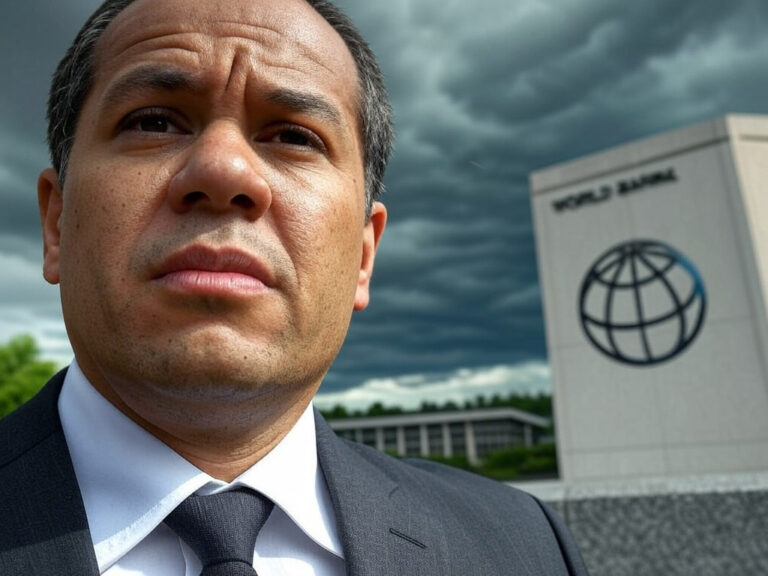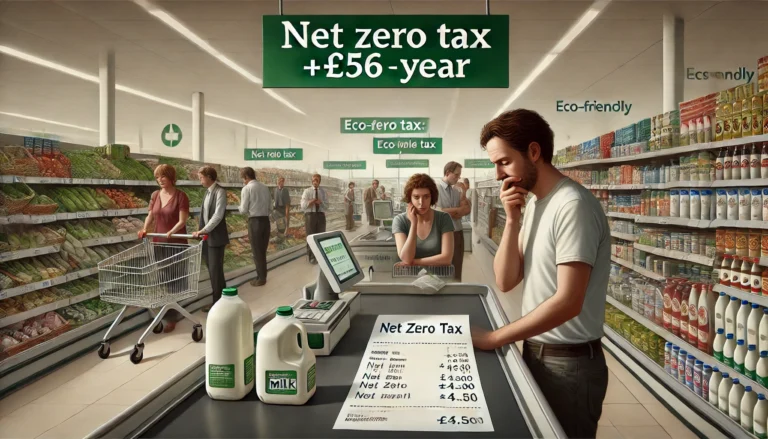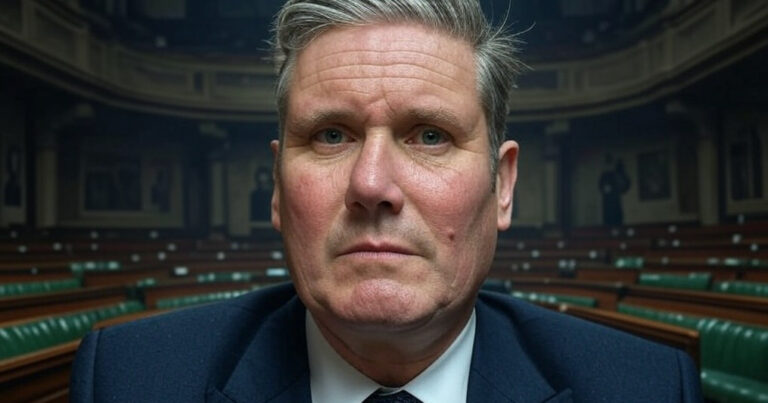
Higher Bills Spark Outrage
Britons are bracing for higher energy bills as the government pushes ahead with its ambitious—and controversial—carbon capture and storage (CCS) projects. The extra cost, set to be spread across households and businesses over the next 25 years, has sparked outrage and concern over the financial strain and the unproven nature of the technology.
Massive Investment in CCS
The Department for Energy Security and Net Zero (DESNZ), under Energy Secretary Ed Miliband, has announced a £21.7 billion investment into CCS technology as part of its strategy to decarbonise the UK’s energy grid by 2030. While the government argues that the initiative is a critical step in the fight against climate change, critics are warning that consumers are being left to foot the bill for an untested gamble. Questions remain about how this cost will be divided among households and businesses and whether vulnerable consumers will face disproportionate impacts.
Funding Through Energy Bills
Jeremy Pocklington, Permanent Secretary at DESNZ, revealed to the Public Accounts Committee that three-quarters of the funding will come directly from energy bills, with the rest drawn from central government funds. Defending the plan, Pocklington called CCS the “most cost-effective” method for reducing carbon emissions in heavy industries such as cement manufacturing, where alternatives are limited. He stressed that without investment in technologies like CCS, the UK risks failing its ambitious net-zero targets.
Net Zero Teesside: A Flagship Project
One of the flagship projects, Net Zero Teesside, includes building a gas-fired power station equipped with CCS technology. Emissions from the plant will be captured, liquefied, and stored in chambers beneath the North Sea. Proponents claim that such projects are crucial for slashing industrial emissions and ensuring that the UK maintains its leadership in climate innovation. Yet, sceptics question whether storing vast quantities of carbon dioxide underground is safe, labelling the approach experimental and fraught with risks. Concerns also arise regarding the potential for leaks or other environmental disasters that could negate the supposed benefits of CCS.
Concerns Over Household Costs
Consumers, already struggling with rising energy costs, are alarmed by the looming additional charges. The government plans to delay the implementation of the levies until 2029, when the CCS projects are expected to be operational. However, many worry that these costs will further strain households already hit hard by inflation and ongoing energy price hikes. Energy charities have warned that the poorest and most vulnerable households could face the most significant burden, particularly in a climate of stagnant wage growth and economic uncertainty.
Environmentalists Push Back
Environmentalists and political critics argue that the billions earmarked for CCS would be better spent on proven solutions such as wind and solar energy or improving energy efficiency. Greenpeace UK’s Doug Parr has voiced concerns that the initiative risks “locking ourselves into second-rate solutions,” suggesting that oil and gas companies could exploit the funding to maintain the status quo under the guise of innovation. Activists also highlight that renewable energy investments have already proven to reduce emissions significantly without the complexity and cost associated with CCS.
Ed Miliband Faces Backlash
Adding to the controversy, Energy Secretary Ed Miliband’s recent comments have drawn backlash. Miliband suggested that the transition to net-zero could lower energy bills, a claim met with scepticism given the current trajectory of costs. His previous pledge to save consumers £300 annually through clean energy investments has been overshadowed by the additional financial burdens associated with CCS and other green initiatives. (Source: The Sun) Miliband’s reassurances have done little to quell concerns, with critics accusing the government of downplaying the financial strain on ordinary citizens.
Global Context of CCS
The debate over CCS isn’t confined to the UK. Globally, the technology has its champions and detractors. Advocates highlight its potential to drastically reduce emissions from sectors that are otherwise difficult to decarbonise, such as steel and cement production. Critics, however, point to its high costs, energy consumption, and the lack of successful large-scale implementations to date. Countries like Norway and Canada have pioneered CCS projects, but even these have faced significant challenges, including technical setbacks and cost overruns, which have amplified scepticism about its feasibility on a global scale.
Legislative Support in the UK
Domestically, the Energy Act 2023 has laid the foundation for CCS projects, allowing for the licensing of carbon dioxide transport and storage infrastructure and creating commercial frameworks for carbon capture and hydrogen production. (Source: Wikipedia) Despite this legislative support, many remain unconvinced that CCS is the right path forward. Critics also argue that the timeline for deploying CCS is overly optimistic, with numerous logistical and regulatory hurdles yet to be addressed.
Long-Term Implications of CCS
Beyond the immediate costs, the long-term implications of CCS remain unclear. Questions linger over the durability of carbon storage sites, the energy required to capture and transport emissions, and the potential for companies to greenwash their operations using CCS as a cover. Opponents caution that while CCS might offer a short-term solution, it risks diverting attention and resources away from building a truly sustainable, low-carbon energy infrastructure.
Future Challenges and Opportunities
As the UK government charges ahead with its CCS agenda, the spotlight will be on whether this massive investment delivers tangible benefits. For now, British consumers are left grappling with the prospect of paying more for a technology that, while promising, remains unproven at the scale required. The financial risks of relying on CCS—both for the public and private sectors—cannot be overstated.
Conclusion: A Crossroads for UK Energy Policy
The future of the UK’s energy landscape is at a crossroads, and the debate over who should bear the costs of combating climate change is far from settled. As consumers brace for higher bills and a future shaped by CCS, the government faces mounting pressure to ensure transparency, accountability, and a clear demonstration of results. Without these assurances, public support for the initiative could falter, jeopardising its success and the UK’s broader net-zero ambitions.






